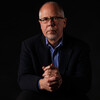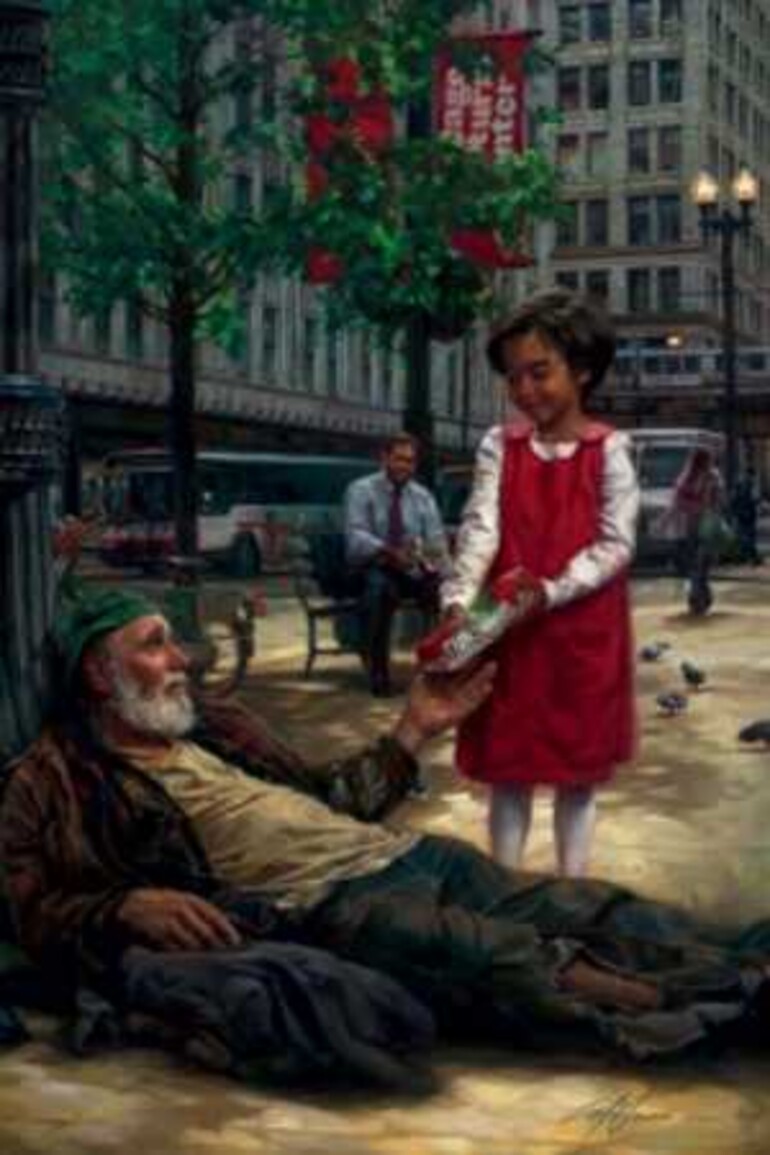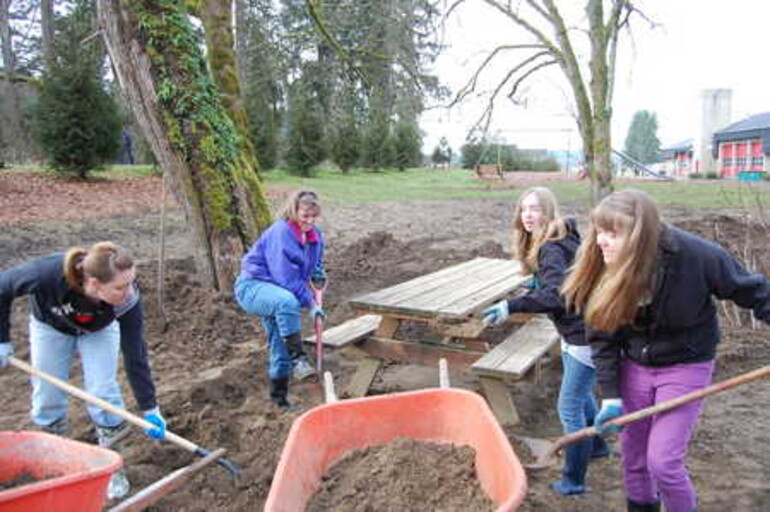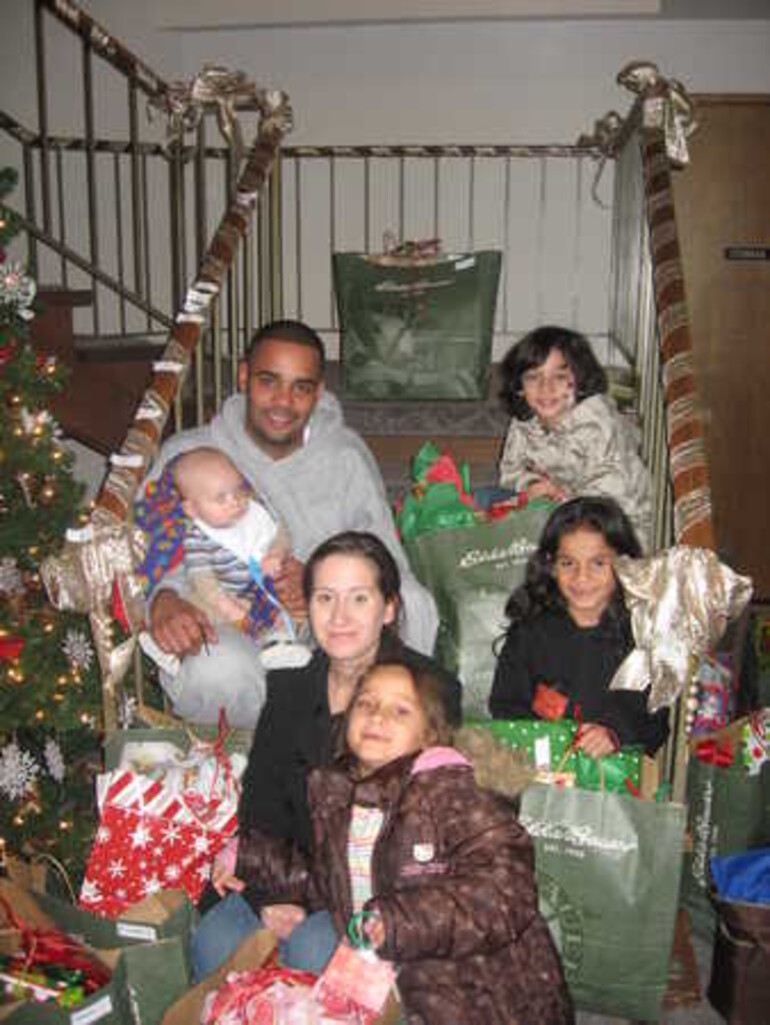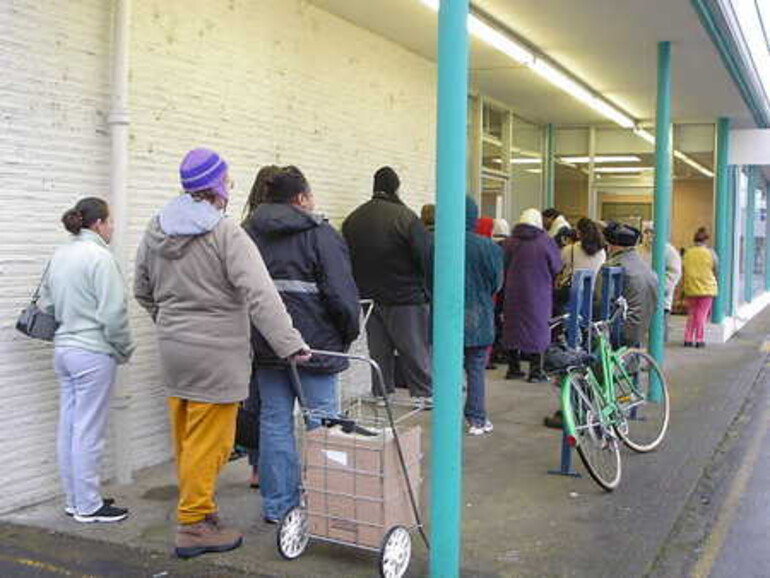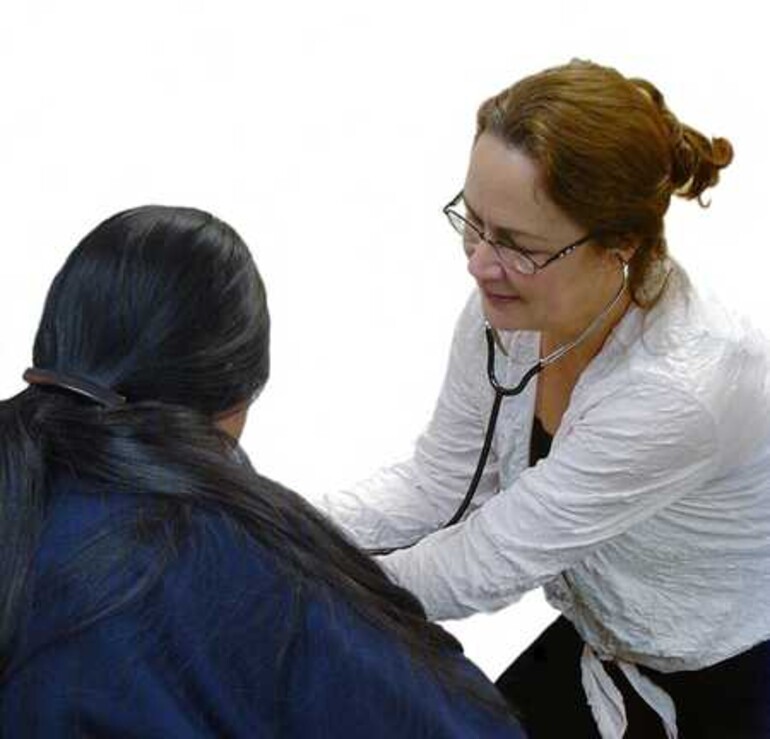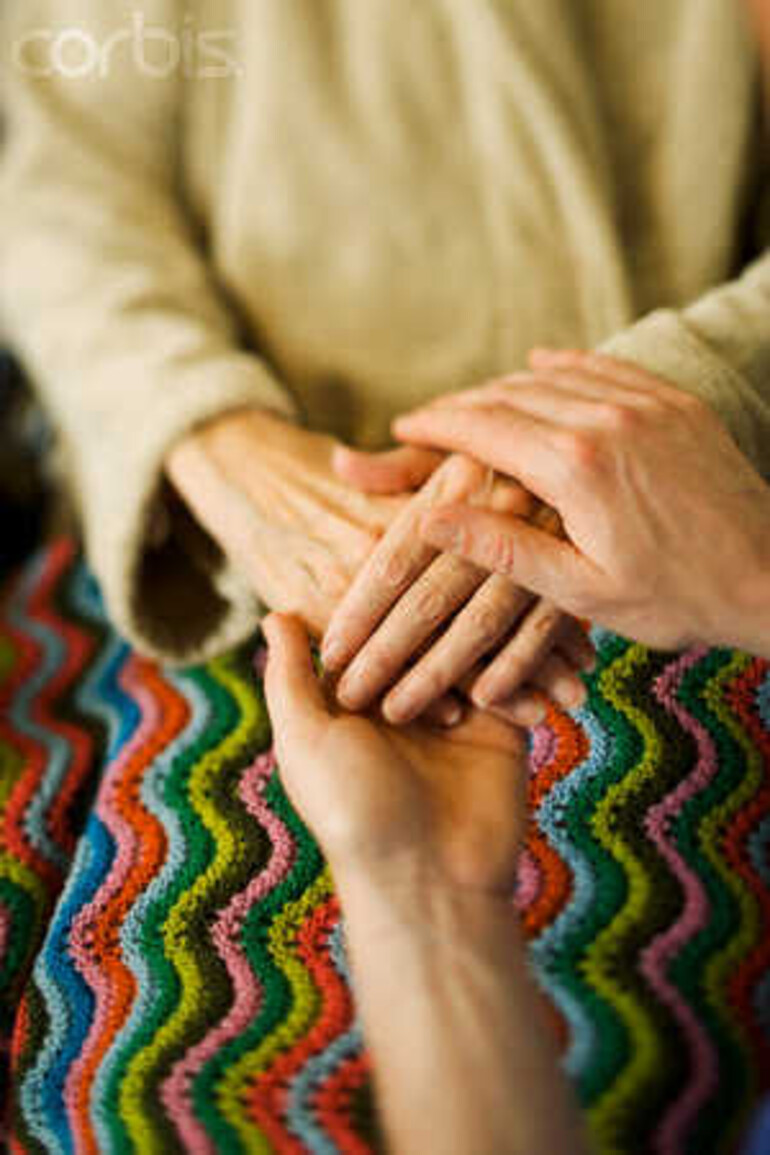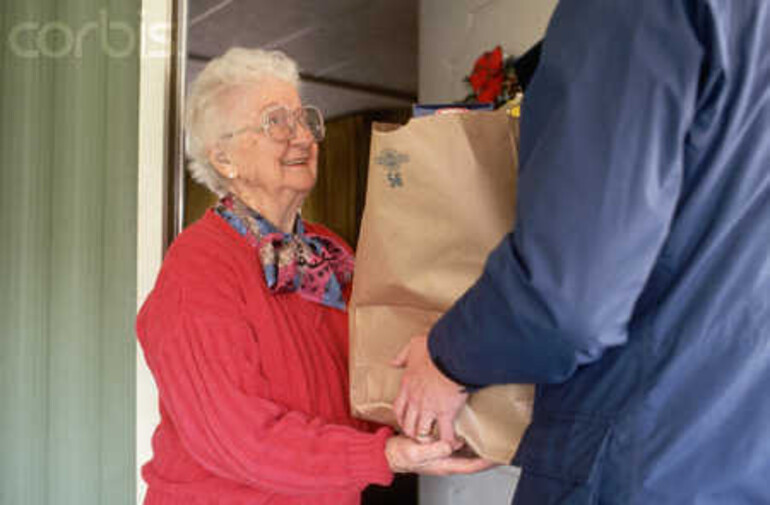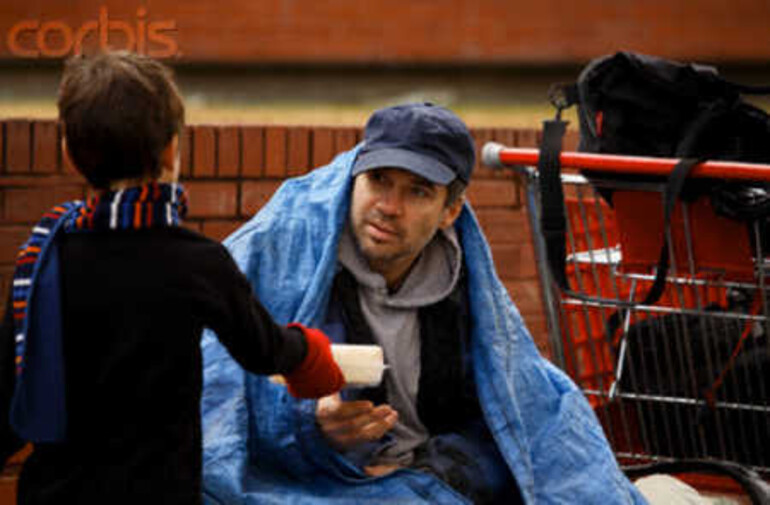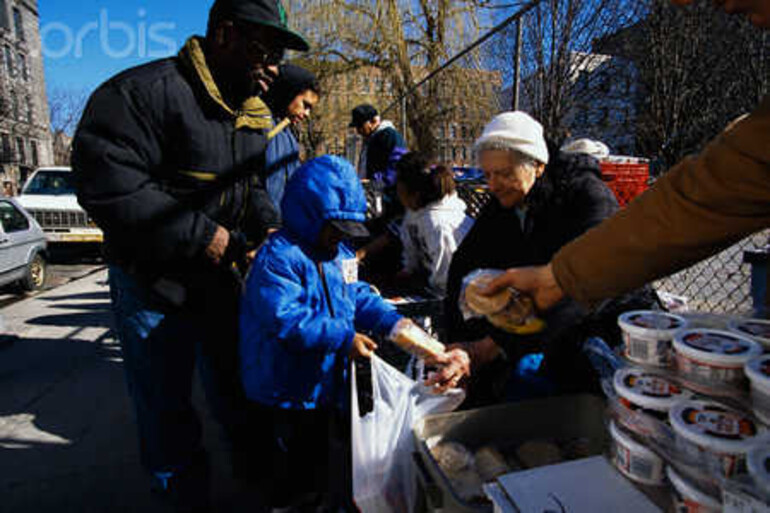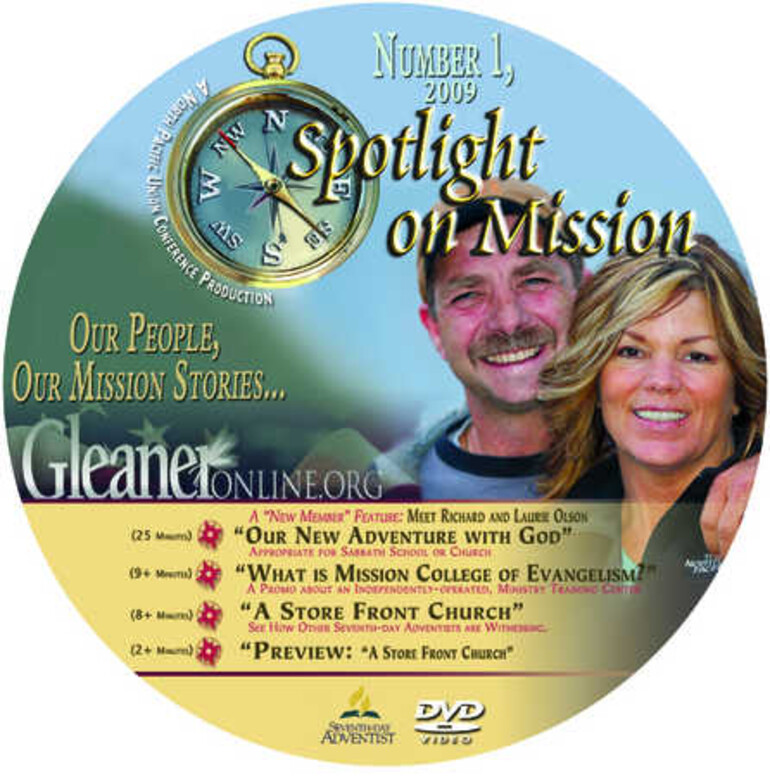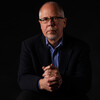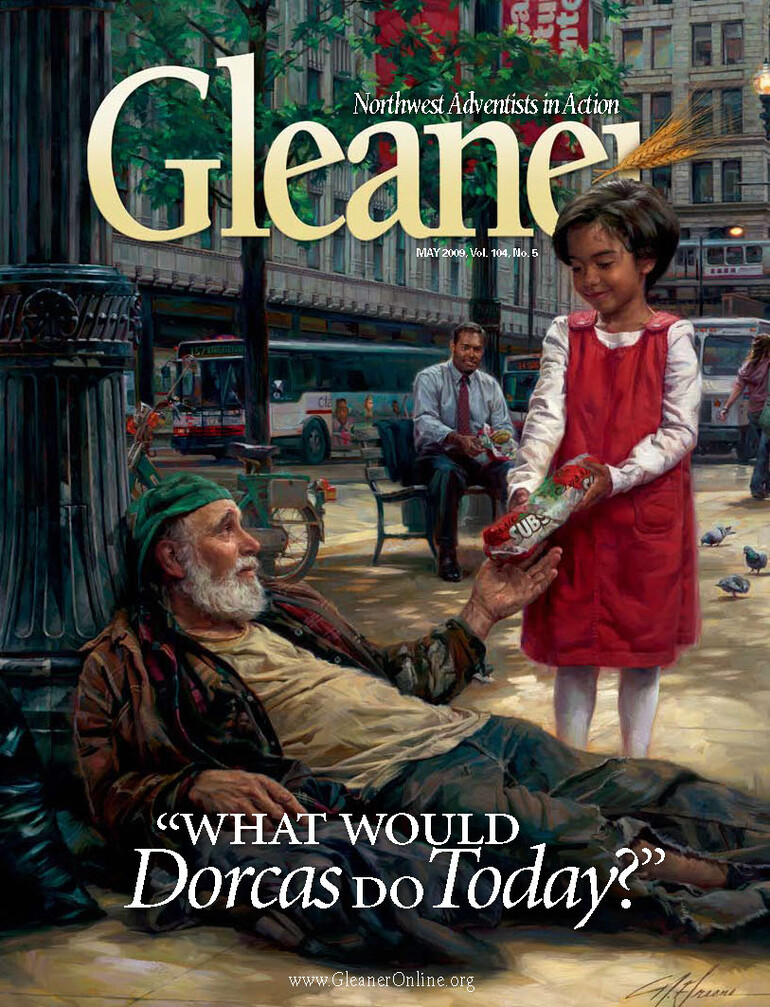When she died, the whole town wept. Her life had been rich with unselfish service to her neighbors—whatever the need, she found an answer. Her death left a hole almost more than they could bear. But then, unexpected drama, in a summons with her Hebrew name. "Tabitha, arise," commanded the apostle Peter. And heartsick loss turned into unbounded joy.
We most often remember her name as it is in Greek: Dorcas, meaning "gazelle," a fitting description of her boundless energy in serving those around her. She inspired countless people through succeeding centuries toward acts of service.
Our own corporate commitment to community service connects closely with this story. In 1879 the Adventist Church officially recognized its own Dorcas Society to address the needs of people and communities across North America. And that name has endured through the various changes the organization has made over recent decades (see this feature's sidebar on page 9).
STUCK ON A STEREOTYPE
To some members, however, the "Dorcas concept" has become a stereotype potentially limiting its power to do good.
Adventist community service is often perceived as something we "outsource" as Adventist Community Services to a small group of volunteers with time on their hands. If a room of women sewing quilts is your picture of Dorcas, you're seeing a critical slice of our church's outreach—but only a slice.
Dorcas exemplified the work of Christ. And more than a century ago, Ellen G. White penned the familiar words which have since challenged Adventists to consider Jesus' unique method of ministry: "Christ's method alone will give true success in reaching the people. The Savior mingled with men as one who desired their good. He showed His sympathy for them, ministered to their needs, and won their confidence. Then He bade them, ‘Follow Me.'" 1
Tracing Jesus' life and ministry through the gospels reveals an intentional mingling of physical, mental and spiritual efforts. It was personal ministry for Him, not something He DID but something He WAS.
REALITY BIGGER THAN PERCEPTION
And that sort of commitment today includes quilts, canned goods and mended clothing—indeed. However it is also much more, and as varied as the spiritual gifts within each of us.
Adventist Community Service volunteers are actively changing their communities in amazing ways. When floods, hurricanes or other disasters strike, they're involved alongside with other relief agencies in the nitty-gritty details in the most difficult places.
Food, clothing and in some cases medical services are provided at ACS centers throughout the Northwest and beyond. In just one metro area, Portland Adventist Community Services (PACS) serves more than 200,000 people and distributes in excess of a million pounds of food each year.
Yet those who work within these nonprofit extensions of the church do so with an uncommon dedication that positions them for a common malady of most volunteer-based organizations—burnout. The numbers of those who have for years sewed quilts are dwindling with age. Those who sort clothes, manage food distribution, pick up donated items, and administer indigent health care are increasingly swamped with growing needs and little relief in sight.
Frankly, our church's relief agency is in need of relief itself. The ACS army needs hundreds if not thousands of new recruits—and not just in the Dorcas rooms and community service centers, but throughout the communities and neighborhoods where we all live. Jesus' ministry wasn't confined to a room or a building. He ministered to people wherever He found them. And He coupled His outreach with an evangelistic call—He invited them to "Follow Me." To unabashedly lean on a cliché, He offered not only a hand out, but also a hand up.
KINGDOM ASSIGNMENTS
The vision is growing. In March, the Upper Columbia Conference hosted an important rally under the guidance of Patty Marsh, community service director, called "Impact: Unleash the Power of Kindness." Its focus: helping to develop church communities that reach people the way Jesus did.
David Jamiesen, Keynote speaker and Aldergrove Church (British Columbia, Canada) senior pastor, asked the several hundred in attendance: "How do ordinary individuals—housewives, mechanics, teachers, nurses and businessmen—become inspired to do something significant to touch the lives of those around them?" The answer, he said, is in understanding the concept of "Kingdom Assignments."
Jamiesen shared how he challenged Aldergrove members with a mission to prayerfully seek "Kingdom Assignments." He invited 30 willing members to take a $100 bill and ask God to show them how to multiply it in order to do an act of kindness for someone outside the walls of the church during the next 90 days. The following week, he challenged 50 more members to sell a treasure valued at $100 or more and bring the funds to the church to use toward a community service project.
The result? As the 90-day reports came in, these investment projects not only touched a community and brought many into church contact, but that $3,000 investment had increased in value to more than $50,000.
Ten churches within the Oregon Conference have already begun their own "Kingdom Assignments" plan, according to Rhonda Whitney, conference outreach director. One family is using their $100 investment fund to buy seed for an organic community garden and inviting their neighbors to garden with them. A 9-year-old girl is working with her family to start a children's visitation ministry for hospitals and the elderly. This summer's Oregon Conference camp meeting will feature full reports of these and many other "Kingdom Assignments" stories.
Whitney says, "It's so natural for us to ask for a list of things to do. But Jesus' method is not a ‘program.' It's not something we do, but rather something we become as we realize outreach is not simply behavior, but rather an attitude of love that produces acts of kindness."
THE VISION IS CATCHING
For some of us who have grown accustomed to community service "outsourced" to a select group of volunteers, here's a News Flash: Each one of us is called to "brighten the corner" right where we are.
Richard and Laurie Olson are relatively new members in Oregon. They're living this journey. Laurie runs an outreach for community children in her home. When Hurricane Ike hit Texas, Richard hooked a trailer up to his truck and headed out to be part of the support teams. They are living by faith, exploring the promises, and learning what it means to be on a full-time "Kingdom Assignment." Their story is highlighted in this quarter's NW Spotlight on Mission, which can be seen in your church or online at www.npuc.org.
SO, WHAT WOULD DORCAS DO?
Dorcas inspired an entire community with her spirit of kindness, her unselfish giving. It's human nature to take an example, create a formula for service and copy it. But when you really get to know Jesus you'll ask Him to give you a love for people, and to impress you with what you personally can do to make a positive impact right where you are. You may never make the headlines, but you will make a difference, one life at a time.
That is the critical element at the core of Adventist Community Services, whether it's done through a local ACS center, or right next door. It starts with an individual, blessed by God and inspired to accept a "Kingdom Assignment" to make a difference for Him. It's the essence of what Jesus came to do. It's the task He left for us. It's what Dorcas would do, today.
1 Ellen G. White, Ministry of Healing, 143.




